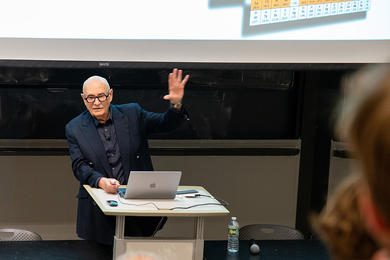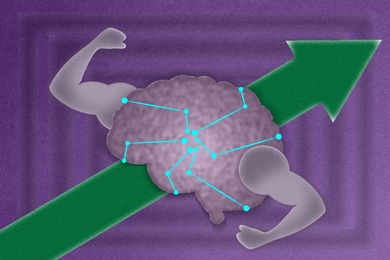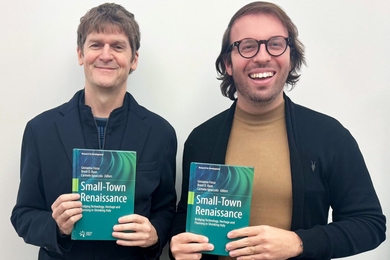Civil rights attorney Lani Guinier, one of the country's foremost intellectuals, will be the keynote speaker at MIT's 27th annual celebratory breakfast to honor the life and legacy of Dr. Martin Luther King Jr. on February 8 in Morss Hall at Walker Memorial.
Professor Guinier replaces attorney Johnnie L. Cochran Jr., who had to withdraw when the judge in a high-profile trial refused to grant a postponement and ordered all attorneys to be in court ready for trial.
Professor Guinier was the first African-American woman to receive tenure at the Harvard Law School when she joined the faculty in 1998. She will address the theme of this year's celebration, "Confronting the Gap: Building and Sustaining Inclusion."
The MIT community is invited to the 7:30am breakfast, hosted by President Charles M. Vest and his wife, Rebecca M. Vest. Seating is limited, with reservations required by Monday, Feb. 5. For information, see http://web.mit.edu/mlking/www.
Professor Guinier, who taught at the University of Pennsylvania Law School from 1988-98, has written widely on topics related to voting rights, democratic theory, affirmative action and legal education. She co-authored the book Becoming Gentlemen: Women, Law School and Institutional Change, a major study of women and law school.
At Harvard, Professor Guinier has created Commonplace, a national nonprofit center to connect citizens, communities and ideas; and Racetalks, a project to create opportunities for multiracial problem solving and collaboration.
After receiving the BA in 1971 from Radcliffe College and the JD in 1974 from Yale Law School, she clerked for Judge Damon Keith of the US District Court for the Eastern District of Michigan from 1974-76. She served as a juvenile court referee in Wayne County, MI from 1976-77 and was a special assistant to the assistant attorney general in the Civil Rights Division of the Department of Justice from 1977-81.
Before joining the faculty at the University of Pennsylvania, she was assistant counsel for the NAACP Legal Defense Fund in New York from 1981-88. She was a guest lecturer at the Harvard Law School in 1996.
JUSTICE NOMINEE
Professor Guinier came to public attention in 1993 when President Clinton nominated her to head the civil rights division of the Department of Justice and then withdrew her name without a confirmation hearing. The experience prompted her to write the book Lift Every Voice: Turning a Civil Rights Setback into a New Vision of Social Justice.
She has received numerous awards, including the 1995 Champion of Democracy Award from the National Women's Political Caucus, the 1995 Margaret Brent Women Lawyers of Achievement Award from the American Bar Association's Commission on Women in the Profession, and the 1994 Rosa Parks Award from the American Association of Affirmative Action.
More recently, Professor Guinier received a Woman of Achievement award from the Big Sister Association of Boston in 1999. In 1998, the Women's Bar Association of Massachusetts honored Professor Guinier with the Lelia J. Robinson Award at its 20th anniversary celebration in 1998. Named for the first woman admitted to the bar in Massachusetts, the Lelia J. Robinson Award recognizes women lawyers who have made outstanding contributions to the advancement of women both within and outside the legal community.
Other speakers include President Vest and Provost Robert Brown. The MIT Gospel Choir and the South Central Massachusetts Gospel Choir will perform at the breakfast.
The celebration will also feature arts and musical events. Thirty MIT and Wellesley students in the Dr. Martin Luther King Jr. IAP Design Seminar will construct an installation which reflects their thoughts on civil and human rights, justice, equality, race, racism and the principles of Dr. King. The installation may be viewed in Lobby 10 from February 7-11.
On Friday, Feb. 9 at 5:30pm, a free performance of jazz, gospel music and dance will take place in Kresge Auditorium.
A version of this article appeared in MIT Tech Talk on January 24, 2001.






